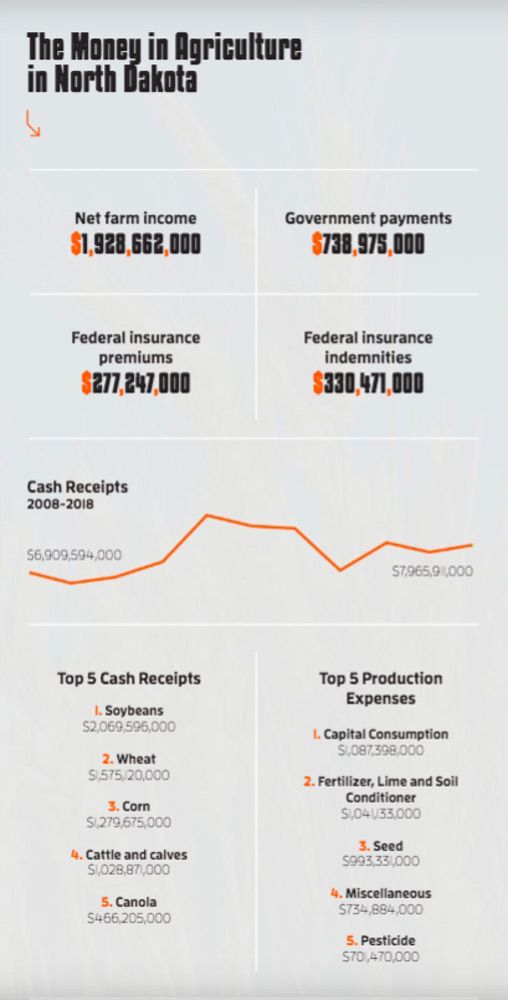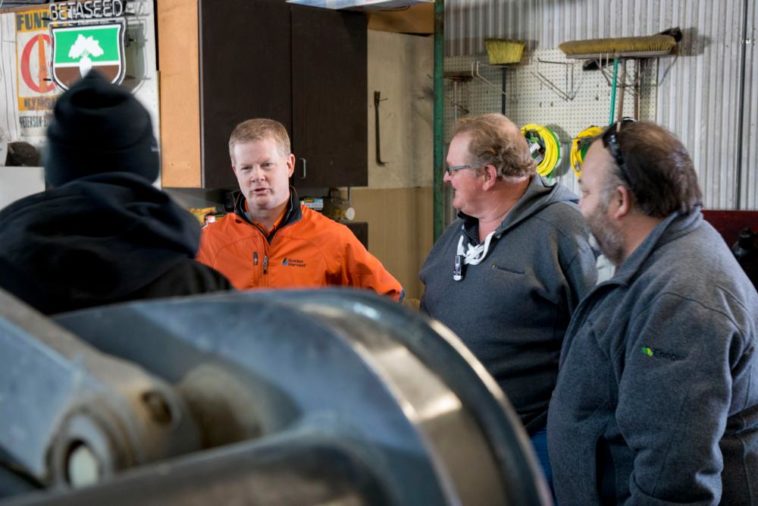With all the current advancements in ag-tech, where are we at right now? To help answer that question, we caught up with Colin Steen, the Managing Director and Head of Operations with Syngenta Ventures, an investment firm focused just in the agriculture space.
Q&A
Where do you think the ag-tech industry is at now versus 20 years ago? It seems like there’s a lot of buzz around solving the problem feeding 10 billion people in 2050.
Ag tech is advancing at a very quick pace. Just look at the Grand Farm outside of Fargo where we see how autonomous equipment has the potential to solve labor challenges. Meanwhile, there are new biological solutions to manage long-standing pest problems and better ways to utilize data to help farmers maximize both profitability and productivity. The focus on feeding 10 billion people in 2050 is sound, and I believe we, as an industry, are in a very good spot to deliver on that challenge. The key will be how to do this, while at the same time helping farmers improve profitability in the current ag climate.
There is a lot of ag-tech being developed right now. What are you hearing from farmers when it comes to the technology being created and its actual use in the field?
I think farmers are generally surprised at the amount of time, effort and dollars being invested to help them increase productivity and profitability. They are used to seeing innovation come from their traditional input and machinery suppliers like Nutrien and John Deere, but now they are seeing real innovation come from small start-ups based in locations far from the Midwest. Of course, farmers have one shot a year to achieve success with their crops, so they are not going to adopt new technologies or products without on-farm testing. That’s why they are preaching patience to many of these start-ups. Additionally, a lot of farmers tell me that while they appreciate the industry’s focus on improving productivity, what they really need are solutions that help improve their profitability. Representatives from ag companies approach farmers each week, promising yield increases of 10 bushels or more, but not many are addressing the underlying issue of declining profitability on the farm.
Colin Steen
A lot of farmers tell me that while they appreciate the industry’s focus on improving productivity, what they really need are solutions that help improve their profitability. Representatives from ag companies approach farmers each week, promising yield increases of 10 bushels or more, but not many are addressing the underlying issue of declining profitability on the farm.”
Emerging Prairie’s Grand Farm effort is aimed at creating the first fully automated farm. How far out are we from that being a reality?
I believe we are closer than we think. In the Midwest this year, there was a company called Sabanto that had autonomous planters running in the fields in Nebraska and Iowa, planting soybeans. There are many companies that are working very hard right now to bring about improved efficiencies and a lot of the pieces of the production puzzle have been solved. Firms like Smart Ag, DOT and others have made huge strides in the past two years in terms of automating the activities on the farm. It’s amazing to think how 20 years ago, we didn’t even have steering control and GPS in our tractors and now you would never think of buying a piece of machinery without it. It often takes the vision and discipline of a project like the Grand Farm to bring all of the individual pieces together. I am excited to watch this develop in the years ahead.

In your opinion, what is the most exciting work being done in ag-tech right now?
There are a lot of incredibly interesting things happening in ag-tech all around the world right now. There are tremendous advances in the biological product space that have the potential to change the way farmers control pests, which is really exciting. Companies like Biophero, which is developing pheromones to control insects while not harming beneficial pests will make a big difference in how insect problems are managed. Precision application technologies, gene editing, epigenetics and alternative distribution channels are all developments that are really exciting for farmers, whether they farm 10,000 acres in Fargo or two acres in India. The more a new technology improves a farmer’s profit potential and helps them be more efficient, the more excited I get about a technology or company. It can be easy for our Syngenta Ventures team to become enamored by the “wow” factor of new technologies; but it’s essential that we ask ourselves this question when evaluating prospects: Will this technology ultimately provide value to farmers?
What sector of ag-tech will the next big innovations come from?
As our team at Syngenta Ventures looks 5-10 years out, we see a lot of innovation coming in the area of precision application technology. The ability to use artificial intelligence to distinguish weeds from crops at 10+ mph in the field will drive massive disruption in how farmers spray pesticides on their farms, using targeted applications that enable more sustainable crop production. In addition, the increasing popularity of alternative proteins among consumers will have significant impacts on soybean farmers as companies look to use soybeans for protein replacement. Finally, the work at the Grand Farm and the continuing automation of farming will have a tremendous impact on labor and the increasing ability for farms to scale and drive down fixed costs per acre, therefore increasing profitability.
What’s the one message you want people to leave with after they hear you speak?
I think people should come away with a lot of optimism for the future of agriculture. Yes, agriculture is experiencing challenges today, but ag investors don’t operate in a “today” world – we are focused on the future. There are a lot of companies working very hard to help improve both productivity and profitability for farmers around the world. It is an exciting time to be investing in ag-tech!





